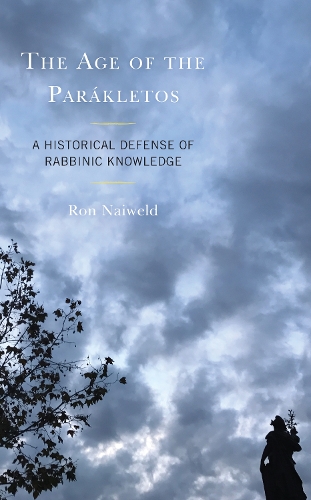
The Age of the Parkletos: A Historical Defense of Rabbinic Knowledge
(Hardback)
Publishing Details
The Age of the Parkletos: A Historical Defense of Rabbinic Knowledge
By (Author) Ron Naiweld
Bloomsbury Publishing PLC
Lexington Books
4th January 2022
United States
Classifications
Professional and Scholarly
Non Fiction
History of religion
Ancient history
Judaism: sacred texts and revered writings
Religion and politics
Social groups: religious groups and communities
296.109
Physical Properties
Hardback
124
Width 160mm, Height 228mm, Spine 15mm
367g
Description
This book concerns the history of the Bible, Christianity, Rabbinic Judaism, and theological-political thought in the West. Its operation is threefold. First, it shows that the biblical text can be read as a theological-political narrative about a god who strives to be recognized as such by a group of people. Second, it reconstructs the history of the conversation that took place around this narrative from the fourth century BCE to the beginning of the Middle Ages, showing how it was dependent on social and political circumstances, rather than on theological notions. Lastly, it distinguishes between two strands of the conversationthe Christian and the Rabbinicthat carried the narrative through the Middle Ages and explains why the latter offered a more advanced interface with the political reality than the former. This book introduces a reading of the biblical narrative that takes seriously the difference between the two creation stories that begin the Book of Genesis and considers them as referring to two distinct divinities. This reading reveals in the Bible an overarching narrative about the god Yhwh, who tries to impose himself as the sovereign of Israel by claiming that he is the same god as Elohimthe benevolent creator of the perfect world.
Reviews
Challenging and provocative, an attempt to attend to the discussions the rabbis entertained with the texts of their ancestors. Bible or Talmud, these texts were like a meeting room where conversations have been held between time and space. No need to be convinced to sit around the table and enjoy the talks.
--Sylvie Anne Goldberg, School for Advanced Studies in the Social Sciences (EHESS)Ron Naiweld's thought-provoking new book reflects about the rabbinic knowledge that was excluded from Europe at the heart of Europe. Going beyond the oft-debated questions of anti-Semitism, Holocaust, and genocide, Naiweld asks what the West 'lost by excluding rabbinic knowledge as a discourse of truth' 'Where do we place rabbinic knowledge on the axis that extends from ancient Athens, through the Hellenistic and Roman philosophers, and Christian thinkers of late antiquity and the Middle Ages, to Kant and Hegel, and their critical demise by Nietzsche, Heidegger, Marx, and Freud' By challenging the hegemonic scholarly treatment of rabbinic literature as a mere historical document for past life of gone Jews, by thinking not on Jewish bio-politics, but on rabbinic theo-politics, Naiweld's book is a powerful act towards the decolonization of Jewish Studies.
--Elad Lapidot, University of LilleAuthor Bio
Ron Naiweld holds a research position at the CNRS in the cole des Hautes tudes en Sciences Sociales, in Paris, France.
